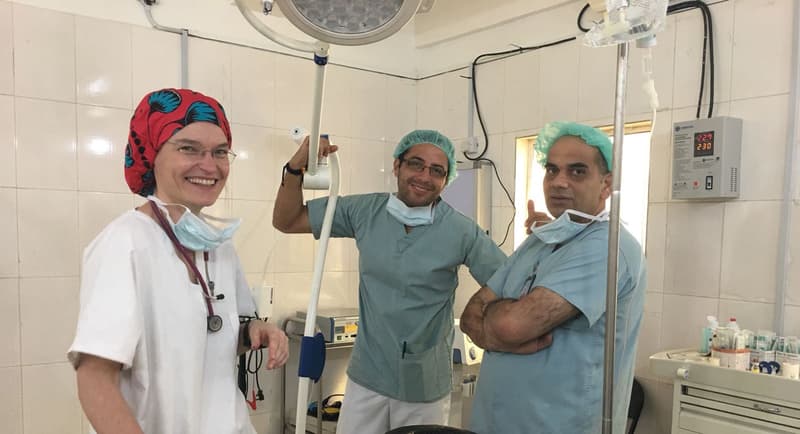Survey Analyst - TALIS
Paris
- Organization: OECD - Organisation for Economic Co-operation and Development
- Location: Paris
- Grade: Level not specified - Level not specified
-
Occupational Groups:
- Statistics
- Closing Date:
Survey Analyst - TALIS
- Full-time
- Grade: PAL6
Company Description
The Directorate for Education and Skills (EDU) leads the Organisation’s work to help member and non-member countries achieve high-quality learning for all, design better skills policies, and turn them into jobs and growth. The directorate carries this out by providing statistics, analysis and policy advice to countries on a wide range of educational topics.
Job Description
The Early Childhood and Schools Division of EDU oversees the Teaching and Learning International Survey (TALIS). TALIS is an international, large-scale survey of teachers, school leaders and the learning environment in schools. Its main goal is to generate internationally comparable information relevant to developing and implementing policies focused on school leaders, teachers and teaching, with an emphasis on those aspects that affect student learning.
TALIS is looking for a Survey Analyst to help achieve the project’s objectives. The Survey Analyst will lead the conceptual development of TALIS, oversee the design of the questionnaire, and supervise reporting operations. He/she will manage several staff. The selected candidate(s) will work under the supervision of the TALIS Project Manager.
Main Responsibilities
Conceptual development
Oversee the development of the TALIS conceptual framework.
Help align the TALIS conceptual framework with contemporary teaching issues and institutional priorities, such as climate change and digitilisation.
Contribute to the development of optional modules for TALIS and their conceptual frameworks, such as a study of teacher’s general pedagogical knowledge and separating the ISCED 3 optional module from the main (ISCED 2) module.
Questionnaire design
Instrument development
Lead the development of main TALIS instruments (teacher and school leader questionnaires).
Lead the review of pilot study and field trial data.
Provide expert advice on the appropriateness and functioning of questions and scales.
Make decisions about adding, removing and modifying questions in TALIS instruments.
Advise on the rotation of questions across different instrument forms and make decisions about which questions should appear on which forms.
Contribute to the design of questionnaires for optional TALIS modules.
Technical Advisory Group (TAG) (provide technical guidance)
Identify and recruit experts to be part of the TALIS Technical Advisory Group (TAG), ensuring that TAG membership is diverse.
Organize TAG meetings (around one per year, usually in-person).
Regularly communicate with TAG members and seek their advice on important technical issues, such as process monitoring and sampling.
Questionnaire Expert Group (QEG) (lead the development of TALIS instrumentation)
Work with the designated TALIS contractor to help identify and recruit QEG members, ensuring that the QEG’s knowledge is reflective of different education systems and schools of thought.
Lead communications between TALIS and the QEG (either directly or through the designated TALIS contractor).
Attend QEG meetings (around one per year, usually in-person) and advocate for TALIS interests.
Analysis and reporting
Supervise the development of the reporting plan, which determines an overarching narrative for TALIS reporting, what content appears in the initial report, what content appears in thematic reports, and what additional outputs are created.
Oversee and contribute to the authoring and data analysis of the initial TALIS report.
Contribute to the authoring and data analysis of TALIS thematic reports.
Monitor the development of additional outputs, such as data analysis and visualisation tools and using artificial intelligence to analyse data.
Research and development
Lead the TALIS research and development agenda.
Propose research and development projects.
Oversee the completion of proposed projects, and contribute to them as necessary.
Management and representation
Supervise official and temporary staff, ensuring that their work contributes to overall TALIS objectives while creating professional trajectories for them.
Help organise meetings of the TALIS Governing Board (TGB, around once per year, usually in-person) by contributing to the agenda and drafting documents.
Respond to requests from senior leadership for data analysis related to TALIS.
Represent TALIS in conferences and meetings.
Encourage and improve the use of team management tools and practices (e.g., shared calendars, project management software, and post-mortem evaluations).
Qualifications
Ideal Candidate Profile
Academic Background
An advanced university degree or equivalent in social sciences, psychology, education, statistics or a related field.
Professional Background
A minimum of three and preferably five years’ experience in quantitative data analysis and reporting in an international or national agency, or research institute. Experiences with analysing TALIS data or large-scale international survey data, analysing equity issues in education or education policies related to equity are advantages.
Proven success in designing and managing of a social science survey and/or international survey.
Good leadership skills with the ability to plan, co-ordinate and supervise complex projects and to deliver them to schedule.
Ability to present complex analyses to specialist and non-specialist audience.
Experience working in the education sector (e.g., as a teacher or a principal) would be an advantage.
Web development experience would be an advantage.
Database management would be an advantage.
Tools
Advanced fluency in R.
Github/Gitlab/Algobank.
Advanced fluency in Python would be an advantage.
Advanced fluency in STATA would be an advantage.
Power BI would be an advantage.
Core Competencies
OECD staff are expected to demonstrate behaviours aligned to six core competencies which will be assessed as part of this hiring processes:
Vision and Strategy (Level 2).
Enable People (Level 1).
Ethics and Integrity (Level 2).
Collaboration and Horizontality (Level 2).
Achieve Results (Level 2).
Innovate and Embrace Change (Level 2).
There are three possible levels for each competency. The level for each competency is determined according to the specific needs of each job role and its associated grade.
To learn more about the definitions for each competency for levels 1-3, please refer to OECD Core Competencies.
Languages
Fluency in one of the two OECD official languages (English and French) and knowledge of the other, with a commitment to reach a good working level.
Knowledge of Spanish would be an asset.
Additional Information
Closing Date
This vacancy will be filled as soon as possible, and applications should reach us no later than Sunday 10 December 2023 23h59 (CEST).
Contract Duration
Two-year fixed term appointment, with the possibility of renewal.
Depending on level of experience, monthly salary starts at either 7499 EUR, plus allowances based on eligibility, exempt of French income tax.
Click here to learn more about what we offer and why the OECD is a great place to work.
Click here to browse our People Management Guidebook and learn more about all aspects relating to people at the OECD, our workplace environment and many other policies supporting staff in their daily life.
Please note that the appointment may be made at a grade lower in the specified job family, based on the qualifications and professional experience of the selected applicant.
The OECD is an equal opportunity employer and welcomes the applications of all qualified candidates who are nationals of OECD member countries, irrespective of their racial or ethnic origin, opinions or beliefs, gender, sexual orientation, health or disabilities.
The OECD promotes an optimal use of resources in order to improve its efficiency and effectiveness. Staff members are encouraged to actively contribute to this goal.








